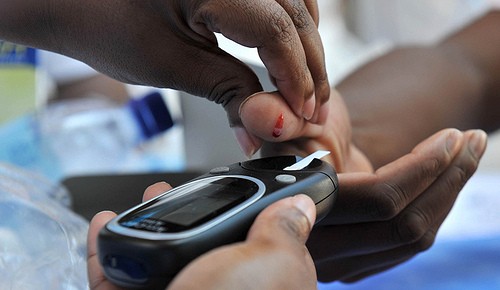
Close to half a million people in the US rush to hospitals every year due to blood sugar-related issues.
And to prevent such a situation, scientists have come up with a new device that would soon make the conventional finger pricking device, which monitors blood sugar levels, a thing of past.
Scientists have engineered a new glucose-sensing protein, an implantable device to track the blood sugar levels round-the-clock, reported Indian Express.
"It is a glucose/galactose binding protein (GBP) that changes shape when it attaches to glucose," explained a research by Sylvia Daunert and colleagues from University of Miami in the US.
The device has been engineered in such a way that it could remain stable in and out of the body for a longer duration of time, in order to detect the levels of glucose in a diabetic person.
At present, most diabetes patients monitor blood sugar levels with the help of a glucose meter. A diabetic pricks a finger using a tiny needle to draw blood sample, which is then applied to a test strip placed in the glucometer. The glucometer reads the glucose level at that moment.
But the problem is that the level of glucose fluctuates throughout the day, and hence several readings are needed to keep track of the sugar level, which the device lacks. The device is also not always convenient as some people find pricking their finger a painful task.
For more continuous monitoring, some patients use implantable devices which determine the blood sugar continuously once a minute but such devices have disadvantages too. They are expensive and are usable for only a week, and are also not as dependable as conventional meters.
As a result, many diabetic patients do not test their blood sugar level as regularly as they should, risking major complications such as a diabetic attack.
"For more continuous monitoring, some patients use implantable devices that measure blood-sugar as often as once a minute, but they are expensive, can only be used for up to a week and are not as reliable as conventional meters," researchers stated.
Scientists, keeping these drawbacks in mind, established the improved device using protein for continuous glucose monitoring system.
The details of the findings have been published in the journal ACS Chemical Biology.








